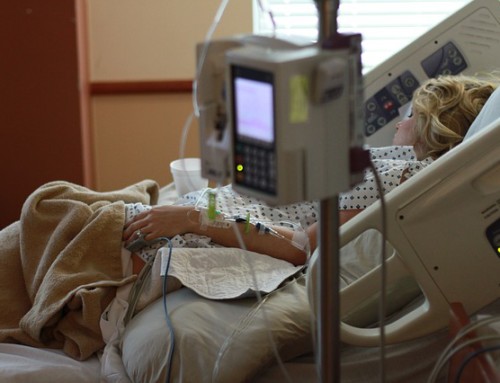Do I Need to Consider Prenatal Testing
 Parents today have access to more prenatal testing options than ever before. We’re not just talking about your routine ultrasounds here. We are talking about diagnostic tests that provide a wide range of insights for parents looking to understand what potential risks are out there. Some of the factors the tests look for include genetic, endocrine, and metabolic disorders.
Parents today have access to more prenatal testing options than ever before. We’re not just talking about your routine ultrasounds here. We are talking about diagnostic tests that provide a wide range of insights for parents looking to understand what potential risks are out there. Some of the factors the tests look for include genetic, endocrine, and metabolic disorders.
Parents that know they have a family history of various genetic disorders will frequently seek these tests out to understand the risks for their baby. For example, specialized tests have even been developed to identify the presence of genetic markers tied to amyotrophic lateral sclerosis.
Most Common Prenatal Tests Parents Choose
Some of the more common prenatal tests include the following:
- Triple Screen Test: Measures levels of AFP, hCG, and estriol.
- Maternal Serum Alpha-Fetoprotein Screening (MSAFP): A component of the Triple screen that evaluates risk for certain disorders.
- Quad Screen Test: Evaluates potential genetic disorders.
- Cordocentesis: Percutaneous Umbilical Blood Sampling (PUBS): Evaluates risk of abnormalities through testing of fetal cord blood.
- Amniocentisis: Evaluates potential for disorders.
- First Trimester Screen: Evaluates risk for genetic abnormalities.
- Chorionic Villus Sampling (CVS): Checks for genetic abnormalities.
What if We Get Abnormal Results
False positives are an unfortunate; but fairly common occurrence in prenatal testing. The tests may be designed to identify potential risk factors for genetic disorders; however, other unknown factors can regularly set off false positives.
False Positive Case Study:
A study conducted by the Fred Hutchinson Research Center took a closer look at false positives in prenatal testing. In their evaluation, the researchers reviewed the methodology used to determine if markers for genetic disorders were present.

The prenatal test under review works by using a blood sample from the mother. Testing a mother’s blood to determine if the baby is healthy may sound strange; but it’s important to understand that cell-free DNA from the baby is passed through the blood back to the mother. This approach does however, present a couple problems.
- The First Problem: Problems arise in testing the cell-free DNA gathered from the mother to do a prenatal screening. The problem is that the mother has her own cell-free DNA floating around in the body as well.
- The Second Problem: The tests are conducted using calculations with an assumption that all women have the exact same amount of DNA. While they do have the same number of chromosomes (assuming no genetic anomalies), the same amount of DNA is a very different story. It’s very possible and even quite likely that there are extra harmless strands of DNA. Women in this circumstance would never even know it and have no reason for concern.
As you can see from the combination of these two problems, false positives are an inevitability. What makes the problem more concerning is that even once expecting parents have had a false positive result cleared up, they frequently hold on to their concerns and worry. Letting go is nearly impossible for some parents – or at least until they see the baby’s ten fingers and ten toes.
This study represents just one of the ways in which false positives can occur. There are countless others, so its important for expecting parents to understand that these results are not iron-clad. They are meant to give advanced warning and enable you to take precautions or prepare as necessary.
Statistics published by Fred Hutchinson further clarified that a parent receiving a positive result in a prenatal screening still has a 60% chance of delivering a perfectly healthy baby.
State Requirements for Prenatal Screening
Every state has a number of required prenatal screenings that have been established by your department of health. These screening can look for anything from Down syndrome (Trisomy 21) to Tay-Sachs disease.
Please understand that the state mandate in most cases is that these tests be offered. You need to make a decision from there. Depending on your religious beliefs or other reasons, you do have a choice.
So Why Do the Prenatal Tests
 These tests are designed to provide you with insight and allow you to plan for potential bumps down the road. Understanding that you have an elevated risk for delivering a child with a genetic disorder will provide you with the advanced time to line up healthcare providers and even seek the guidance of a genetic counselor.
These tests are designed to provide you with insight and allow you to plan for potential bumps down the road. Understanding that you have an elevated risk for delivering a child with a genetic disorder will provide you with the advanced time to line up healthcare providers and even seek the guidance of a genetic counselor.
Yes, many results are false positives; but the intent with the screening is to provide an early warning. Use it as a tool for guidance; but understand that it is not gospel.
Prenatal screening tests for fetal abnormalities are optional. It’s important to make an informed decision about prenatal testing, especially if you’re screening for fetal conditions that can’t be treated. If you find yourself trying to understand if prenatal tests are for you, then ask yourself a few questions:
- What happens if I get a positive result? What will that mean for me and the pregnancy? Depending on what test comes back positive, would you consider terminating the pregnancy. If that’s an option for you, just remember again that false positives are common.
- Is it possible that the results will enable you to make positive changes during your pregnancy? Are the positive result related to diet or nutritional factors that you can address?
- Is the test invasive – does it pose ANY risk to my baby? You need to weigh the benefits versus the risks for any tests like this.
- What are the odds the test is providing a false positive?
Nobody can tell you what is the right or wrong thing to do when it comes to prenatal testing. That’s your decision; not the decision of your neighbor, sister, doctor, or people posting to a message board online. Only you can evaluate the risk versus benefits for doing a prenatal screening.
Whichever decision you make, stand firm and best wishes!





